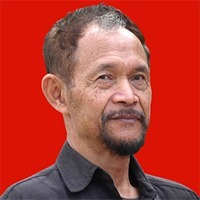Independence
Monday, August 24, 2020
arsip tempo : 174656323313.

WHEN Chairil Anwar wrote
I want to be free from everything
Independent
Also from Ida
he surely knew—or would quickly find out—that what he wanted was impossible. In the midst of a world that stores the traces of history, even the wildest of poets cannot be ‘free from everything’.
One could say that he did not believe in destiny, that he did not care about social norms around him. Yet still: he operated within ‘t
...
Subscribe to continue reading.
We craft news with stories.
 For the benefits of subscribing to Digital Tempo, See More
For the benefits of subscribing to Digital Tempo, See More








